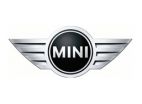
Métisse Motorcycles was founded in 1958 by the Rickman brothers, Don and Derek, both successful motocross racers. They started by just building their own frames, but in 1959 launched their first complete motorcycle, the Mk1 Métisse.
In 1962, the legendary Mk3 was first raced and provided the catalyst for Métisse’s legendary innovative design and engineering excellence. In 1966, Métisse (French for Mongrel) branched out into the road racing scene and the first road racing motorcycle from Métisse was again a masterclass in innovation and outstanding handling,
Through the 70s, Métisse’s reputation was boosted in the USA by its record of successfully competing in desert racing and was championed by the likes of Steve McQueen and Bud Ekins. Their exporting success was acknowledged by the Queen’s Award to Industry in 1974.
In 1982 Pat French became the custodian for the Mk3 and Café Racers, continuing production and spares using the original moulds and jigs. Despite growing popularity and improved engineering from Japanese motorcycle manufacturers through the ’80s and ’90s, thanks to Pat French and his MRD company, the name of Métisse continued to thrive.
Following several changes of ownership over the ensuing years, Métisse Motorcycles is now run by Métisse enthusiast Gerry Lisi. In 2008 the iconic Steve McQueen Desert Race replica project was started, with Steve’s son, Chad personally becoming involved and ensuring all design details were correct. With the McQueen estate granting the rights for 300 to be produced in limited numbers, the iconic status of the Mk3 lives on. Métisse is the only British manufacturer that handcrafts unique motorcycles with its very own engine.
They currently build the limited edition Steve McQueen Desert Racer™ and other Mk3 and MK5 models, together with undertaking special projects and selling frame and bodywork kits from their premises in Faringdon, Oxfordshire.

MG Motorsport was set up in 1990 by Doug Smith to service and supply parts to owners of later MGs, especially the MGC for which he had developed several improved and performance parts. The business gradually expanded to include building “new” MGBs and Cs as well as restoration, road and race preparation, and standard and performance parts for most of the post 1955 MG models.
Tom, Doug’s son, works in the business and is a successful multiple race winner in his MGB Historic car, 297 EFU.
They currently work from their premises in Bovingdon, near Hemel Hempstead and among other mainly MG projects manufacture the highly regarded MGC GTS Sebring and MGB Historic Racer replicas. These comply with FIA regulations for Historic Racers.

Mika Cars is part of Hall Engineering and Design Ltd, founded by Robin Hall. Hall has a rich history in automotive engineering, having worked on various projects for Jaguar Land Rover, BMW, and other notable companies. The company is based in Warwickshire, and focuses on designing and building niche sports cars with a strong emphasis on lightweight construction and performance. The company was heavily involed with the development of the Wells Vertige sports car, amongst other varied projects. Mika Cars have recently announced two versions of it's lightweight buggy, the Meon, in both ICE and full electric variants.

BMW acquired the MINI brand as part of its purchase of the Rover Group in 1994 and since production of the new MINI started in 2001, more than two million cars have been made at Plant Oxford, of which approximately 75% have gone for export. Hundreds of MINIs leave the plant's assembly lines each day, off to meet owners in more than 100 countries around the world. Since 2000, around £1.5 billion has been invested in MINI manufacturing in the UK.
Although Plant Oxford is the birthplace and heart of MINI production, two other UK plants have a part to play. Plant Hams Hall, near Birmingham, makes the new MINI petrol engines and Plant Swindon produces body pressings and sub-assemblies and all this comes together at Plant Oxford with body shell production, paint and final assembly. Plant Oxford currently builds the Cooper 3-Door and 5-Door, and a new Convertible model, and of course the extra-quick John Cooper Works (JCW) version. The new all-electric MINI Cooper and Aceman will be built at plant Oxford from 2026.
The Countryman model is currently built in Austria due to production capacity limitations in the UK and also assembled at other BMW plants for localised markets.

Mirage Automotive
Models
GT/CGT
Mirage Automotive Developments Ltd was founded in late 2016 with the sole purpose of disrupting the classic car scene. A family run business at heart, the vision of the company was to design and manufacture a modern engineered two-seater GT that is fun and responsive to drive, while making it look and feel like it belonged in the early 60s.
Prior to the formation of the company, the initial design of the GT started back in 2011, where extensive design and modelling resulted in two early prototypes that have shaped the current production models. Since the early designs, the GT has evolved bringing with it an exceptional mix of traditional craftsmanship and appropriate modern technology.
Since the company opened the GT up to international markets in 2020, demand has continued to increase and the company has now outgrown it’s North Wales base. A new permament home is currently being contructed over the border in Shropshire, England.
“We are in the process of building a permanent home in Shropshire, which will allow the current GT to be manufactured with ever greater levels of quality. This will also give us a fantastic base to start building our new alternative fuelled GT in the coming years.” Matthew Potts – Managing Director
They now also offer the new Mirage CGT, a lighter, stonger, more finely tuned carbon fibre version of their standard GT.





